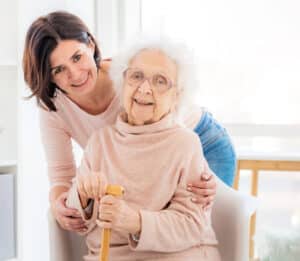You may have noticed certain things about your elderly parents that has you concerned about their safety and wellbeing. Maybe there have been some changes in how they walk, and they’re not as steady as before. Or perhaps he or she has been having more trouble completing daily activities like shopping, cleaning, or other household chores.
You might feel like it is time to get them some help, especially if they are eligible for CDPAP, the New York State Medicaid program that allows seniors with an illness or disability to hire a caregiver of their choice.

However, like many older adults, your loved one might be reluctant to accept home care services at first. He or she might see it as a sign of weakness, or an infringement upon their independence. Also, seniors often have privacy concerns about letting strangers come into their homes.
While their concerns are understandable, at the end of the day, you know that home care is the best option when it comes to keeping your loved one safe and comfortable. So, your job is to present the idea in a way that helps them accept home care, while not viewing it as a weakness or infringement on their part.
With that in mind, here are four things to consider when discussing home care with your elderly parent.
1. Home care as a favor to you
Present the idea of hiring a caregiver as something your elderly parent can do for you. Knowing that your loved one is well taken care of would provide you with peace of mind so you can better focus on your own life. Parents love helping their children, and they’re much more likely to be willing to accept home care if they view it as a benefit to you.

2. Helping the caregiver
If eligible for CDPAP, your senior parent can hire a friend or a relative to provide them caregiving services. It is the perfect opportunity to help a potential caregiver they like and trust. Maybe there is a college-aged relative who needs a part-time job or a retired friend who might benefit from the extra income. And of course, your loved one gets the care they need. A win-win situation!

3.Home care is a benefit
Talk about home care through CDPAP as a benefit your parent has access to, something you wish you had. Think about it – if you could have the State of New York pay someone to help you with daily activities and chores, wouldn’t you take advantage of the program? Maybe having someone do your parent’s laundry and shopping can free up time for them to focus on a passion project they’ve been putting off.
4. Addressing any concerns
Finally, reassure your loved one by addressing any concerns they have. Let them know that you value their input, and you’ll only move forward with their approval. Tell them that they’ll be closely involved in the process of choosing the right caregiver, and it will only be someone that they like and trust.
Taking the time to understand your parent’s concerns and getting them on-board will go a long way to make sure that the future caregiving relationship is successful for all parties involved.
